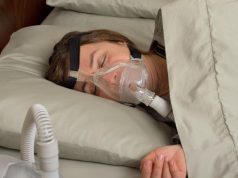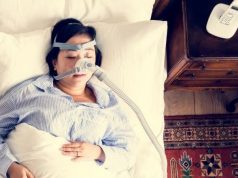Those with higher apnea-hypopnea index more impaired than those with lower AHI
FRIDAY, March 11, 2016 (HealthDay News) — Sleep-disordered breathing (SDB) has a deleterious impact in children, affecting neurocognitive functioning, according to a study published online March 1 in the American Journal of Respiratory and Critical Care Medicine.
Scott J. Hunter, Ph.D., from the University of Chicago, and colleagues recruited 1,010 5- to 7-year-old snoring and nonsnoring children from public schools. Participants underwent polysomnography and were subdivided into four groups based on apnea-hypopnea index (AHI). Neurocognitive assessments of intellectual, attention, memory, language, and executive development were conducted and cognitive functioning was compared for the groups.
The researchers found that across the groups, there were significant differences in the Differential Ability Scales verbal and nonverbal performance and in Global Conceptual Ability scores, with worse performance for higher AHI. Specific developmental neuropsychological assessment subscores differed across the groups, suggesting differences in levels of engagement and problem solving. Compared with all three lower-AHI groups, children with higher AHI were significantly more impaired.
“Affecting developing capabilities, as illustrated by cognitive measures, in a severity graded manner, SDB could adversely impact on children’s capacity to attain academic and adaptive goals, ultimately hampering their ability to reach independence,” the authors write. “Our findings support the need for increased awareness with particular emphasis on children with more severe obstructive sleep apnea.”
Full Text (subscription or payment may be required)
Copyright © 2016 HealthDay. All rights reserved.








